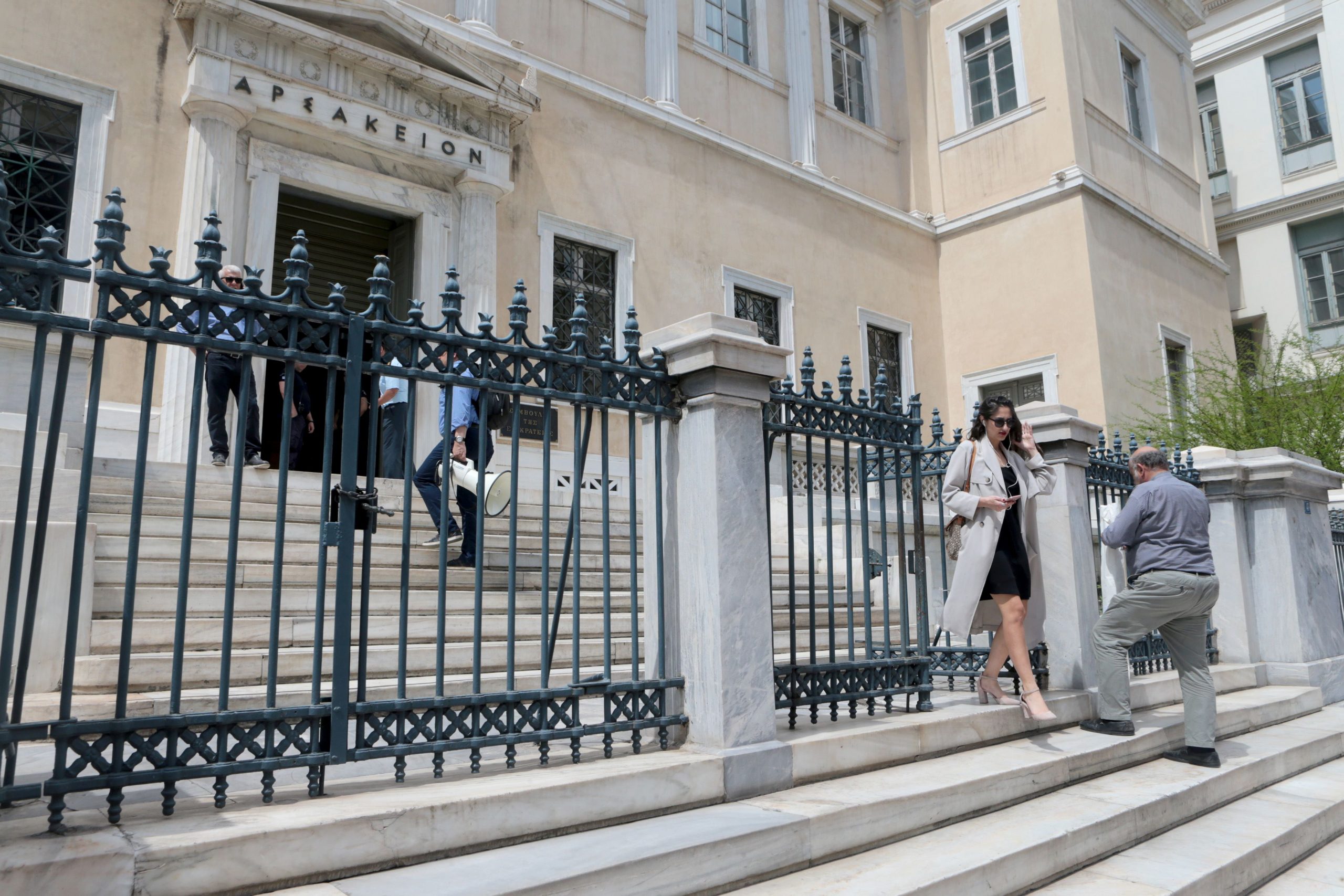A Council of State (CoS) ruling on Friday throwing out a 2021 law preventing citizens from learning why authorities placed them under legal surveillance – such as mobile phone taps – revived debate in the country over a spyware and eavesdropping scandal that surfaced in 2021, when then MEP Nikos Androulakis revealed that he was targeted by Greece’s intelligence service.
Androulakis, who was subsequently elected president of the PASOK party and took a seat in Parliament last June, had demanded to be informed why he was under surveillance, and sought recourse to the courts when denied.
The highest administrative court in the country, convening in a plenary session, issued a unanimous decision by which an “absolute prohibition” against providing affected petitioners such information was an excessive measure, “even if reasons of national security are cited”. Specific provisions in the 2021 law, itself a revision of previous laws, were therefore deemed feeble and unconstitutional.
With the legal obstacle surpassed, the Andoulakis case will now be bumped back to the domain of the Hellenic Data Protection Authority (HDPA), an independent watchdog. The PASOK leader will now have to re-apply to find out the particulars of his case, with HDPA’s board members ruling in this instance.
Androulakis
In an immediate reaction, Androulakis said he aims to meet with the head of the independent authority, Christos Rammos, on Monday.
He also referred to a “historic day” and a message sent by the CoS: “…enough, Mr. Mitsotakis”, a reference to Greek Prime Minister Kyriakos Mitsotakis, whom the socialist leader has charged tolerated the surveillance operation run out of the prime minister’s office at the Maximos Mansion government seat.
“Enough with the breach of the rule of law.”.

Gov’t spox
In reply to Androulakis’ comments, government spokesman Pavlos Marinakis first called the latter’s reaction “premature”.
He reminded a subsequent law was immediately passed in 2022, which was not under the scrutiny of the Council of State, rectifying the previous legal provisions and is now, in fact, the law of the land today.
“We said that this particular legal framework, which envisages a blanket ban on providing such information, had to change…that’s exactly why there was an immediate mobilization on the part of the government. We’re not a government that tries to portray black as white, nor do we comprehend court decisions in a manner that suits us.”
SYRIZA
On its part, main opposition SYRIZA party, in an announcement after the high court ruling, referred to a “slap” against the government and PM Mitsotakis, personally.
The leftist party said the court “found that the law was unconstitutional, one that was manufactured at the Maximos Mansion (premier’s office) in 2021, so the center of surveillance could continue its business without hindrance.”
At the same time, the leftist party also took a swipe at PASOK, charging that “…at a time when the progressive world is thrusting forth the need for a unified front against the oft-charged, but also pressured everywhere Right, Mr. Androulakis feels a need to prioritize his petty partisan interest, proving that he cannot rise to the occasion. He attacks SYRIZA, which fought uncover the scandal, and its president, Stefanos Kasselakis, who continues to fight for justice to be rendered.



